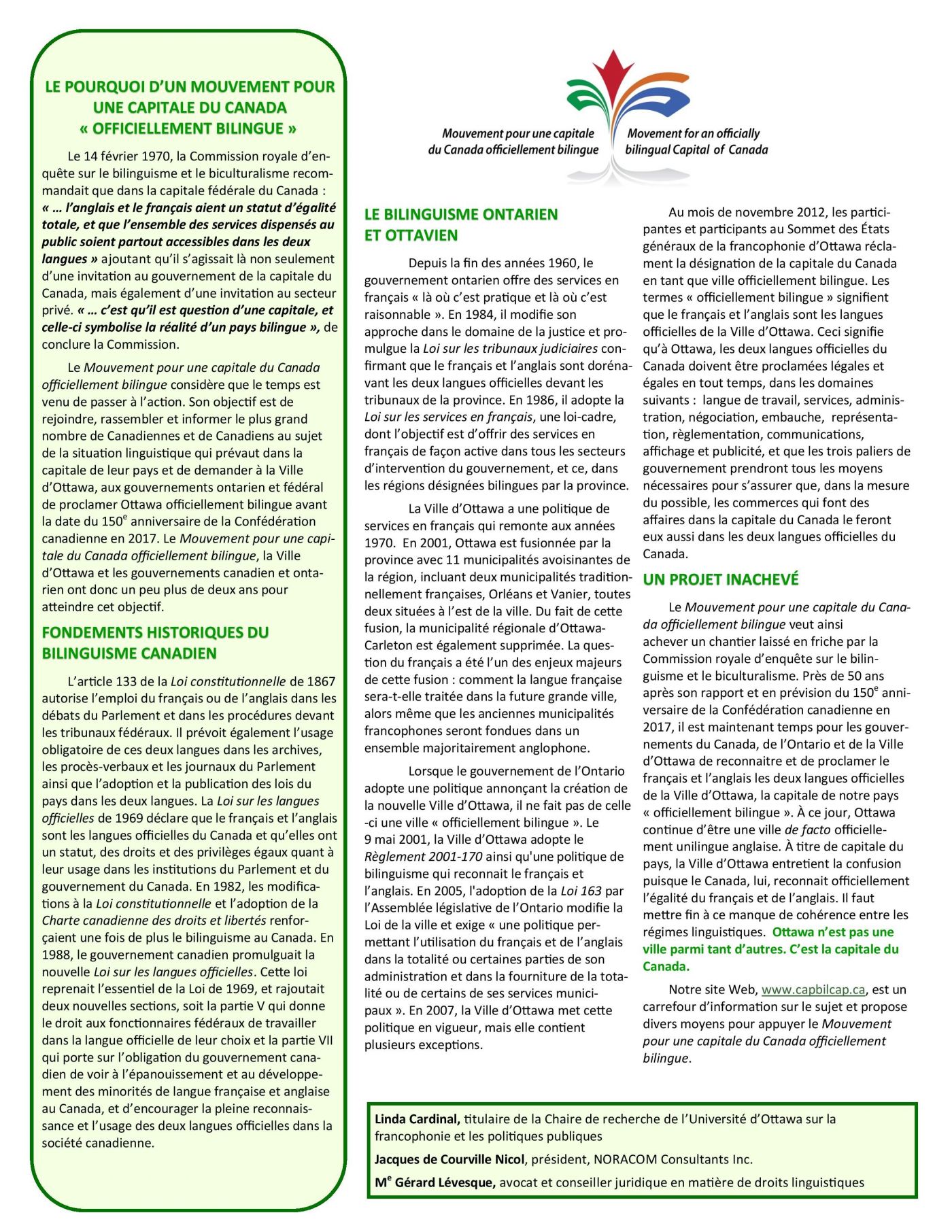Will Ottawa become officially bilingual in 2017? During the 150th anniversary of Confederation, voices everywhere are raised to put pressure on the City of Ottawa to officially recognize its bilingual character. They will be heard.
Make no mistake. The City of Ottawa’s bilingualism policy adopted in 2001 did not make it a formally “bilingual” city: there is no provision in the City of Ottawa Act to recognize the equal status of French and English. If French services are offered, and if it is theoretically possible to work in French in the City of Ottawa, none of these provisions are guaranteed either by provincial legislation or, a fortiori, by the Canadian Constitution. In other words, this policy, along with all its provisions, can be modified by a simple majority in the municipal council.
Participants in the États généraux de la francophonie d’Ottawa make bilingualism their priority in November 2012: Ottawa must become an officially bilingual city. The Movement for an officially bilingual Capital of Canada is born in the wake of the gathering. Very active, particularly on social networks and in the media, the Movement works to convince elected Ottawa officials to pass a resolution calling on the Legislative Assembly of Ontario to amend the City of Ottawa Act to include specific recognition of its bilingual character and its place as the national capital. So far, the City of Ottawa had been reluctant to respond to this request. Mayor Jim Watson is even strongly opposed, repeating for years that Ottawa is already “a model of bilingualism” and that it would be useless to adopt additional measures in this direction. Yet a 2016 survey reveals that two-thirds of Ottawans would be in favour of official bilingualism for Ottawa to mark the 150th anniversary of Confederation.
The Movement for an officially bilingual Capital of Canada finally claims victory on December 14, 2017. The Government of Ontario adopts Schedule 5 of the City of Ottawa Act, 1999, to recognize officially the city’s bilingual character.
